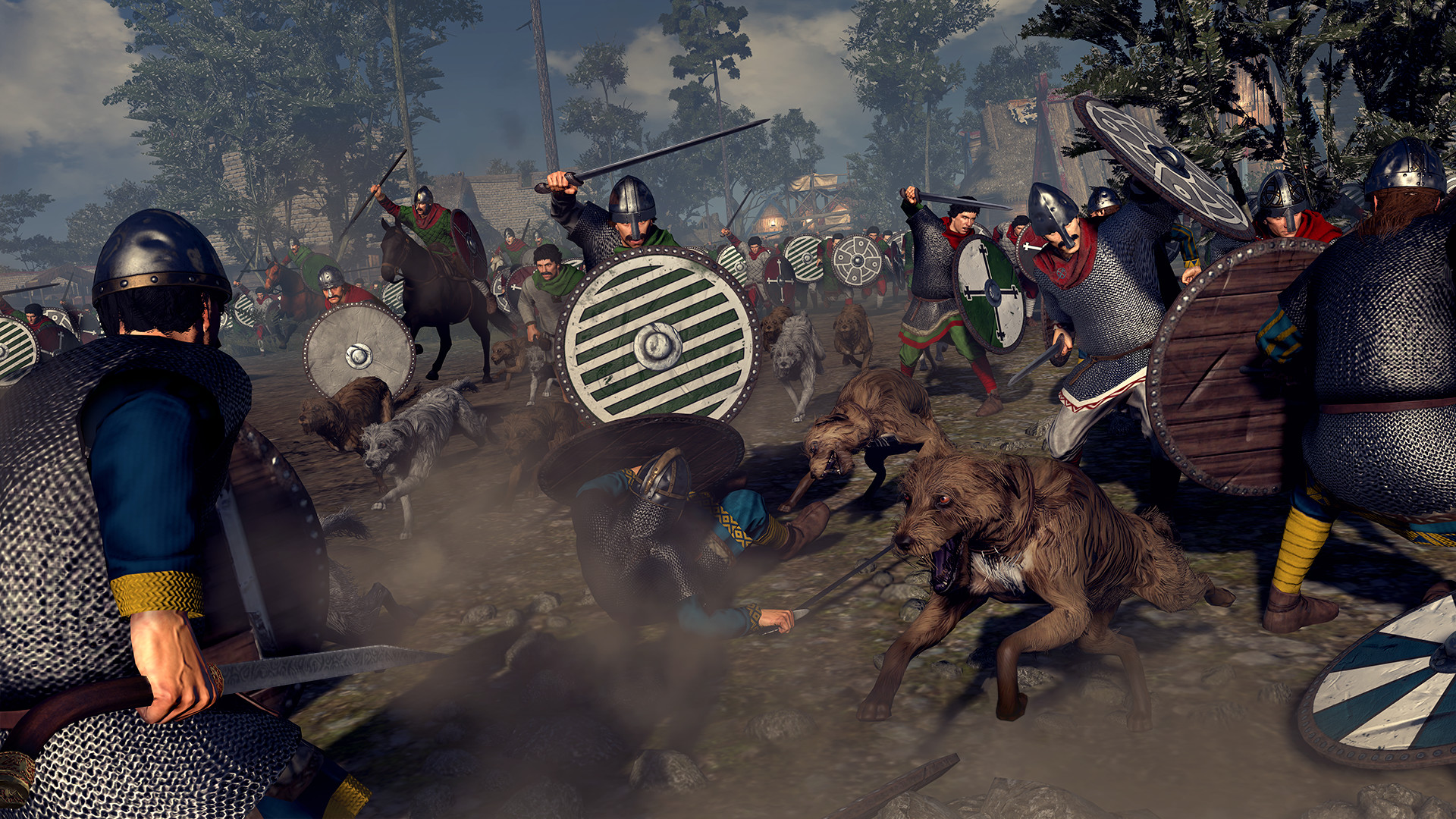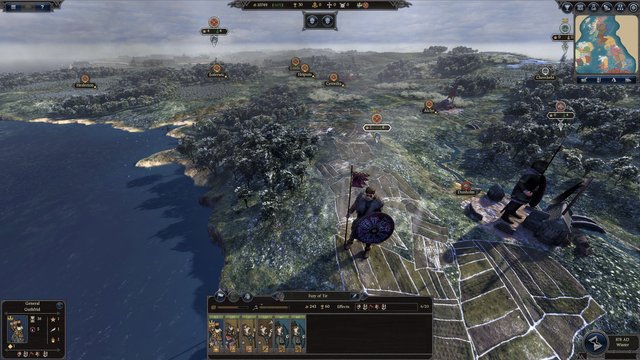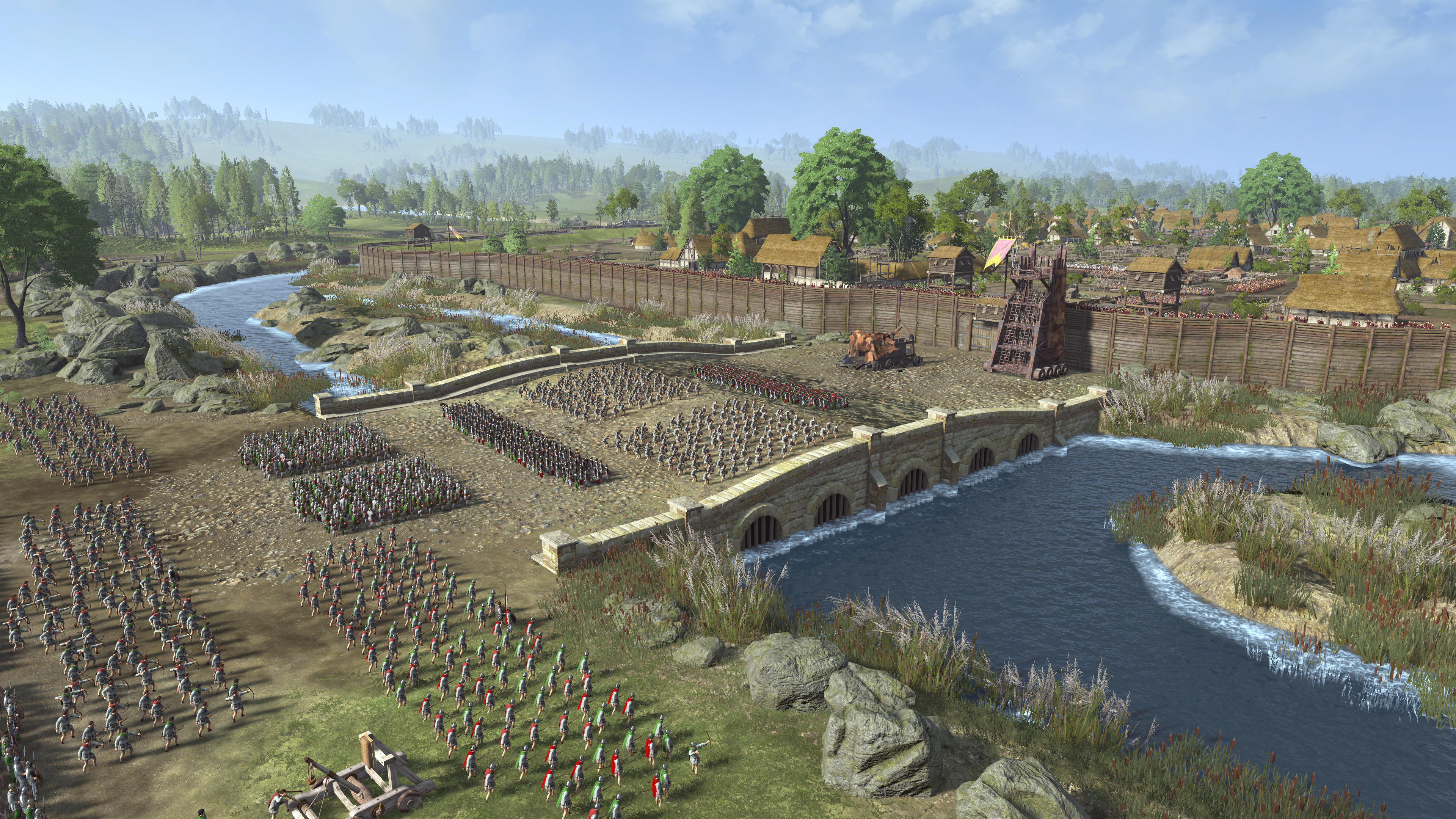Total War Saga: Thrones of Britannia review - A worthy successor?
A brave Total War game that focuses on an exciting historical conflict and doesn’t shy away from experimenting, but with mixed results.

Listen, I get why the Anglo-Saxons regard themselves as the prime owners of this land, but they brought this invasion upon themselves. In public they denounce us Vikings, but behind closed doors they glady profit from our noble slave trade. The boats are packed, it’s time to rid Britannia from this Anglo-Saxon decadence ones and for all. Oh and brother, don’t you dare to start a rebellion while I’m gone.
At the end the ninth century, the British Isles are no funhouse. Countless indigenous peoples are constantly at each other's throats and Viking invasions are constantly knocking at the door. Total War Saga: Thrones of Britannia dives head first into this historical chaos to freely experiment with the classic Total War formula.
The ten playable factions are divided up in five cultures. And although they are visually quite similar - think bearded wild men - they all have their specific peculiarities. The Dyflin Vikings for example rely on their ruthless slave trade, the Welsh prefer to conquer land that reminds them of their heroic ancestry and the Circenn in the North are obsessed with finding the Stone of Destiny. These events and missions give every faction a unique flavor, especially when even the AI actively pursues them.

So eventually conflict becomes inevitable and this is resolved by the tip of a spear or the blade of an axe. The real-time fights have always been a core component of the Total War games and Thrones of Britannia does little to innovate them. The armies are build out of the classic triumvirate of infantry, ranged units and cavalry (with an occasional guest appearance of artillery). The battle system is still solid, but after the spectacle and tactical options of the Warhammer games, this feels like a step back.
Other aspects of the game have clearly been streamlined. It’s easier to recruit armies and agents have been cut out of the game completely. The Scouts and Priests roles have completely been taken over by the generals themselves. These leaders can level up and recruit followers, who grant them special abilities. This mechanic grants you quite a bit of flexibility, but don’t expect the same kind of complexity as in the Warhammer games. Yet overall, it’s a nice change that really helps to speed up the pace of the game and keep your eyes locked on the conflict.
This conflict also gets reflected in your own faction and family. Each character has an influence and loyalty statistic attached to his name. As leader of your faction, you have to make sure that your prestige outshines that of your internal rivals and you force them into submission. To pacify a grumpy nephew you can grant him an estate for example. But, this also means that his influence grows. There are other options available however, like straight up murdering him or finding him a decent wife. The idea behind the internal feuds is neat and feels a bit like Crusader Kings light. How it turns out in practice however, is less exciting. I found that I could pretty much fix all my family problems by just throwing lots of money at it. All in all, this feels like a missed opportunity.

That sentiment also pervades throughout the rest of the campaign. In Thrones of Britannia you hunt down seven different victories, from annexing a specific enemy to conquering all of the Isles. Although that the chaos of the first turns are exhilarating, the missions and interesting decisions quickly run out. At that point your kingdom is mostly too big to be threatened and it’s hard to stay engaged enough to go for that conquest victory. This bummer at the end of a Total War campaign is nothing new, but with its focus and streamlined ideas Thrones of Britannia should have been able to provide a better answer to this conundrum.
In the end Total War Saga: Thrones of Britannia is a game of extremes. On one gand the more focused approach to history and conflict makes for one of the most exciting Total War games. On the other the game shoots itself in the foot just a few times too often. Thrones of Britannia is a rough diamond, that’s just as surprising as it is confusing.
Nice article!
Total War is another series I've almost completely missed somehow (besides a few hours of Rome: Total War back in college), although I like strategy games. One of the reasons is probably that they look incredibly time-consuming, just like the Civilization series (I've successfully stayed away from that too :D ).
Thanks man!
Well, if you ever plan on diving in, I would suggest the Total War Warhammer games. They are the moest creative and exciting.
And the games are surprisingly easy to get into, more so than Civilization. Although Civ games are not that daunting either, especially compared to Europa Universalis or Crusader Kings. Now THAT are hardcore strategy games. And I love them. :-)
Wow that's really cool game it look like real war...☺️
To listen to the audio version of this article click on the play image.

Brought to you by @tts. If you find it useful please consider upvote this reply.
A great game. It is easy to play non-brother